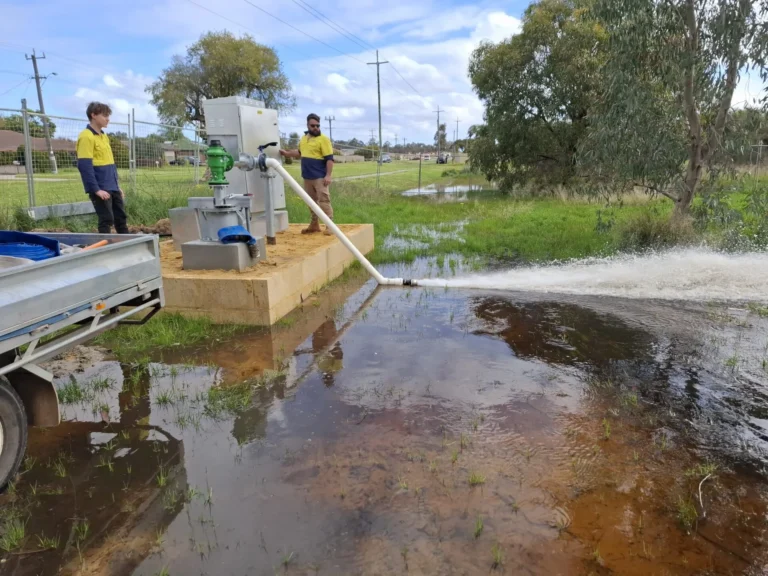Managing your property’s water supply can have a huge impact on business growth. How you use water affects:
- The health of livestock and produce
- The availability of water for new projects
- Compliance with DWER regulations (Department of Water and Environmental Regulation)
Incorrect water management can put businesses at risk of losing their water licence. DWER has the authority to reclaim water allocations if unlawful use is detected.
To help businesses optimise their water use, we’ve compiled 5 key strategies that can enhance efficiency, sustainability, and profitability.

1. Plan Ahead to Avoid Water Shortages
Imagine this: Your water pump breaks down, and suddenly, you can’t feed your stock or irrigate your crops. You scramble to call a technician, only to find they’re fully booked.
Why Planning Matters:
- Prevention over emergency repairs – Regular maintenance reduces unexpected failures.
- Water usage tracking – Keeping records ensures efficient distribution.
- Long-term budgeting – Smart water management helps reduce costs and maximise profits.
2. Solve Problems Before They Escalate
Addressing small water issues early can prevent major disruptions. Businesses should:
✔ Regularly inspect pumps and pipes
✔ Upgrade outdated systems to improve efficiency
✔ Monitor water quality to prevent contamination
By staying ahead of maintenance, businesses avoid costly repairs and ensure a steady water supply year-round.
3. Buy and Sell Water Licences Strategically
Many businesses underuse their allocated water, while others need more to expand operations.
✔ Selling excess water can generate revenue.
✔ Buying additional water allows for scalability and growth.
✔ Water trading platforms connect buyers and sellers, ensuring efficient water distribution.
Leveraging water licence trading enables businesses to capitalise on their unused resources while supporting sustainable water use.
4. Invest in Water-Efficient Technology
Property buyers can typically use their land as they wish, subject to zoning laws.
However, water licences come with strict use conditions, including:
- Allocated water volumes (can’t exceed permitted usage)
- Restrictions on transferability (not all licences can be traded)
- Usage compliance (must meet environmental and operational guidelines)
Ignoring these restrictions can result in penalties or licence revocation.
5. Partner with Water Experts
Many businesses struggle to navigate water regulations, apply for licences, or manage infrastructure.
✔ Consulting water specialists ensures compliance with DWER regulations.
✔ Expert guidance helps optimise water management strategies.
✔ Integrated water solutions improve business efficiency and sustainability.
Collaborating with industry leaders, such as BD Water, ensures businesses maximise water efficiency and long-term sustainability.

Key Takeaways
Smart water management isn’t just about conservation—it’s a business growth strategy.
✅ Regular maintenance prevents costly failures.
✅ Early problem-solving saves money and resources.
✅ Water trading can generate additional revenue.
✅ Technology improves efficiency and sustainability.
✅ Partnering with experts ensures compliance and optimisation.
Want to improve water efficiency and grow your business? Contact BD Water today!


